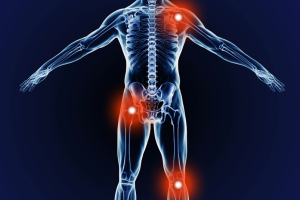 Arthritis is a common condition that affects many people, especially as they age. It can cause pain, stiffness, and limited mobility, making everyday tasks difficult. Knee and shoulder arthritis are two of the most common types of arthritis, and they can be particularly debilitating.
Arthritis is a common condition that affects many people, especially as they age. It can cause pain, stiffness, and limited mobility, making everyday tasks difficult. Knee and shoulder arthritis are two of the most common types of arthritis, and they can be particularly debilitating.
In this article, we will discuss everything you need to know about knee and shoulder arthritis treatment, including the causes, symptoms, diagnosis, and treatment options. We will also provide some tips on how to prevent and manage arthritis symptoms.
Understanding Knee Arthritis
What is Knee Arthritis?
Knee arthritis is a condition where the cartilage in the knee joint breaks down, causing pain, stiffness, and swelling. The knee joint is made up of three bones: the femur (thigh bone), tibia (shin bone), and patella (kneecap). The ends of these bones are covered in smooth cartilage, which allows the bones to glide smoothly against each other.
Causes of Knee Arthritis
Knee arthritis can be caused by a variety of factors, including:
-
- Age: As we get older, the cartilage in our joints naturally wears down, leading to arthritis.
- Genetics: Some people are more prone to developing arthritis due to genetic factors.
- Previous injuries: Injuries to the knee, such as fractures or ligament tears, can increase the risk of arthritis.
- Obesity: Being overweight puts extra pressure on the knees, which can lead to arthritis.
Symptoms of Knee Arthritis
The symptoms of knee arthritis can vary from person to person, but common symptoms include:
-
- Pain in the knee joint, especially when walking, standing, or climbing stairs
- Stiffness and limited range of motion in the knee joint
- Swelling and tenderness around the knee joint
- A crunching or popping sound when moving the knee joint
Diagnosis of Knee Arthritis
If you are experiencing symptoms of knee arthritis, your doctor will perform a physical exam and may order imaging tests such as X-rays, MRI, or CT scans to confirm the diagnosis. They may also order blood tests to rule out other conditions that can cause joint pain.
Treatment Options for Knee Arthritis
There are several treatment options for knee arthritis, including:
-
- Lifestyle changes: Losing weight, doing low-impact exercise, and avoiding high-impact activities can help reduce the strain on your knees and alleviate symptoms.
- Physical therapy: Working with a physical therapist can help improve flexibility, strength, and range of motion in the knee joint.
- Medications: Over-the-counter pain relievers like acetaminophen or nonsteroidal anti-inflammatory drugs (NSAIDs) can help reduce pain and inflammation. Your doctor may also prescribe stronger medications if needed.
- Injections: Corticosteroid injections can provide temporary relief from knee arthritis pain and inflammation. Hyaluronic acid injections can help lubricate the knee joint and reduce friction, improving mobility.
- Surgery: If other treatments are not effective, surgery may be necessary. Common surgical options include knee replacement surgery or arthroscopic surgery to remove damaged tissue from the knee joint.
Prevention of Knee Arthritis
There are several things you can do to help prevent knee arthritis, including:
-
- Maintaining a healthy weight
- Doing low-impact exercise regularly
- Wearing supportive shoes
- Avoiding high-impact activities that can put strain on the knees
Understanding Shoulder Arthritis
What is Shoulder Arthritis?
Shoulder arthritis is a condition where the cartilage in the shoulder joint breaks down, causing pain, stiffness, and limited mobility. The shoulder joint is made up of two bones: the humerus (upper arm bone) and the scapula (shoulder blade). The top of the humerus is shaped like a ball, which fits into a socket in the scapula.
Causes of Shoulder Arthritis
Shoulder arthritis can be caused by a variety of factors, including:
-
- Age: As we get older, the cartilage in our joints naturally wears down, leading to arthritis.
- Genetics: Some people are more prone to developing arthritis due to genetic factors.
- Previous injuries: Injuries to the shoulder, such as fractures or dislocations, can increase the risk of arthritis.
- Overuse: Repeated overhead motions, such as those used in sports like tennis or baseball, can lead to arthritis.
Symptoms of Shoulder Arthritis
The symptoms of shoulder arthritis can vary from person to person, but common symptoms include:
-
- Pain in the shoulder joint, especially when lifting or reaching overhead
- Stiffness and limited range of motion in the shoulder joint
- Swelling and tenderness around the shoulder joint
- A crunching or popping sound when moving the shoulder joint
Diagnosis of Shoulder Arthritis
If you are experiencing symptoms of shoulder arthritis, your doctor will perform a physical exam and may order imaging tests such as X-rays, MRI, or CT scans to confirm the diagnosis.
Treatment Options for Shoulder Arthritis
There are several treatment options for shoulder arthritis, including:
-
- Lifestyle changes: Avoiding activities that cause pain and doing exercises to improve shoulder mobility can help reduce symptoms.
- Medications: Over-the-counter pain relievers like acetaminophen or nonsteroidal anti-inflammatory drugs (NSAIDs) can help reduce pain and inflammation. Your doctor may also prescribe stronger medications if needed.
- Injections: Corticosteroid injections can provide temporary relief from shoulder arthritis pain and inflammation. Hyaluronic acid injections can help lubricate the shoulder joint and reduce friction, improving mobility.
- Surgery: If other treatments are not effective, surgery may be necessary. Common surgical options include shoulder replacement surgery or arthroscopic surgery to remove damaged tissue from the shoulder joint.
Prevention of Shoulder Arthritis
There are several things you can do to help prevent shoulder arthritis, including:
-
- Avoiding repetitive overhead motions
- Doing exercises to improve shoulder strength and mobility
- Maintaining good posture
- Warming up before exercise
Knee and shoulder arthritis can be painful and limit your mobility, but there are many treatment options available to help alleviate symptoms. If you are experiencing joint pain, stiffness, or limited range of motion, talk to your doctor about your treatment options. With the right treatment plan, you can improve your quality of life and regain your mobility.
Contact Us (859-331-3100) For More Information or to Request an Appointment
—
 About Tristate Arthritis and Rheumatology
About Tristate Arthritis and Rheumatology
Tristate Arthritis and Rheumatology is the first and largest Rheumatology practice in the Northern Kentucky area. Founded by Dr. Arthur Kunath in 1986, our rheumatology practice now consists of six doctors who are board certified in both Internal Medicine and Rheumatology and a Physician Assistant. Patients see one doctor (except in emergencies), thereby assuring continuity of care and an individualized docteor-patient atmosphere giving the physician the ability to establish personalized and detailed relationships. Our doctors have received numerous awards, including being listed as “Top Doctors” in Cincinnati Magazine, receiving the Patient’s Choice Award, the Most Compassionate Doctor Award, and the American College of Rheumatology’s “My Doc Rocks” award.


